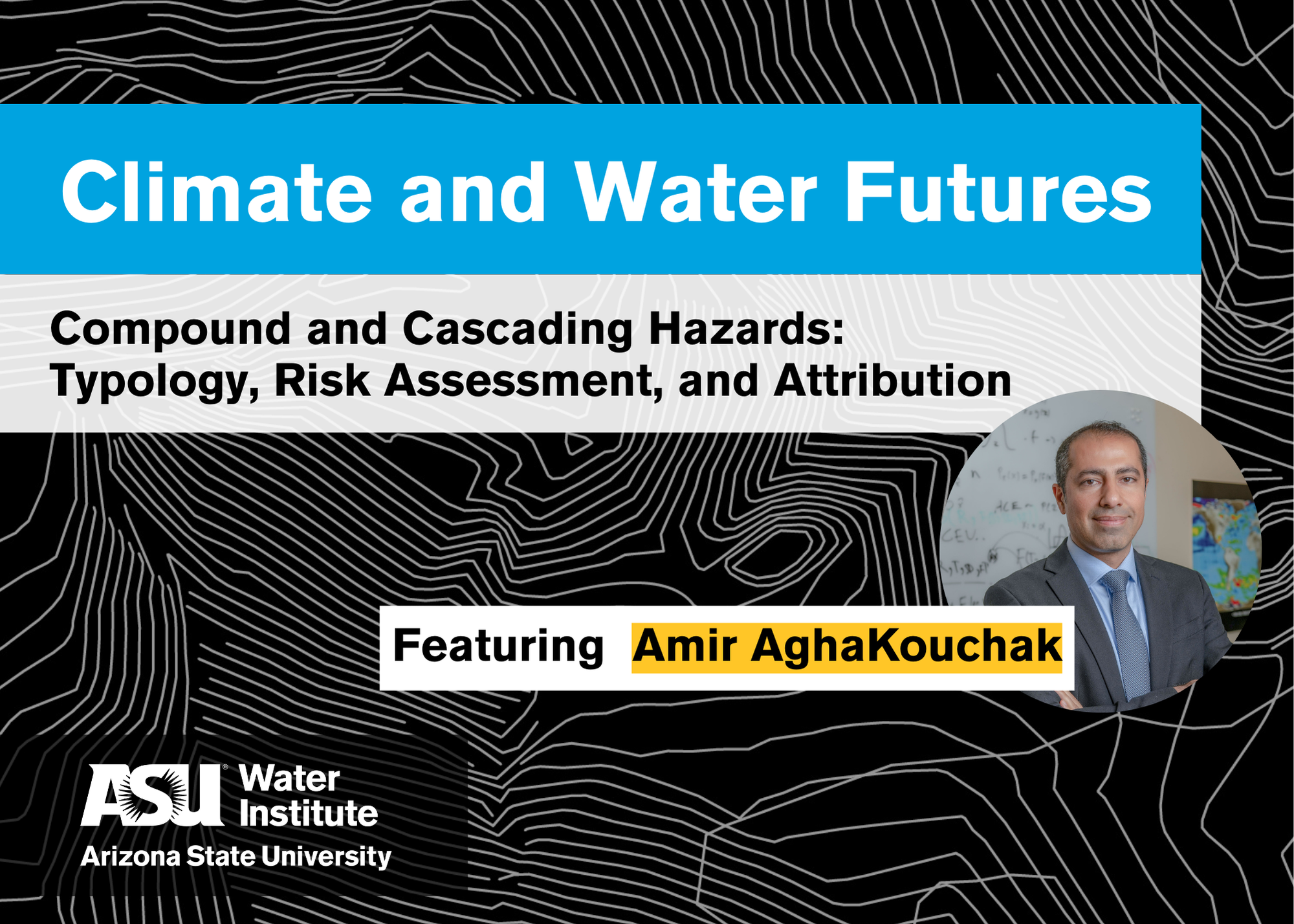Climate and Water Futures | Compound and Cascading Hazards: Typology, Risk Assessment, and Attribution

Event description
- Academic events
- Free
- Science
- Sustainability
About the talk
A combination of climate events may cause significant ecosystem and societal impacts, even when individual events/drivers involved may not be severe extremes themselves – a notion known as a compound event (e.g., drought and heatwaves, rain over burned areas, and combined ocean and terrestrial flooding). Compound events do not conform to traditional categories of extremes because they emerge from complex multi-causal and interdependent processes. Most current environmental risk assessment methodologies ignore the interactions between different hazard drivers. After introducing compound event typologies, I present three different types of compound and cascading events, including drought-heatwaves, sea level rise-terrestrial flooding, and drought-fire-snow/rain interactions. The presentation includes different methodological frameworks and perspectives for detection, modeling, risk assessment, and attribution of compound events. The results show that ignoring the interactions between interrelated hazard drivers significantly underestimate the risk of compound events. I also discuss how human activities can trigger, create, or alleviate the occurrence and impact of compound events. Improved understanding of compound and cascading hazards can lead to development of new paradigms, environmental risk assessment methods, and decision support systems.
About the speaker
Amir AghaKouchak is a Professor of Civil and Environmental Engineering and Earth System Science at the University of California, Irvine. He has an honorary appointment with the United Nations University Institute for Water, Environment and Health (INWEH). Amir’s research focuses on natural hazards and climate extremes and crosses the boundaries between hydrology, climatology, and remote sensing. One of his main research areas is studying and understanding the interactions between different types of climatic and non-climatic hazards including compound and cascading events. He has published 260 peer-reviewed research articles in scientific journals. Amir has received several honors and awards including the American Geophysical Union’s James B. Macelwane Medal, Fellow of AGU, ASCE Norman Medal, and ASCE Huber Research Prize.

